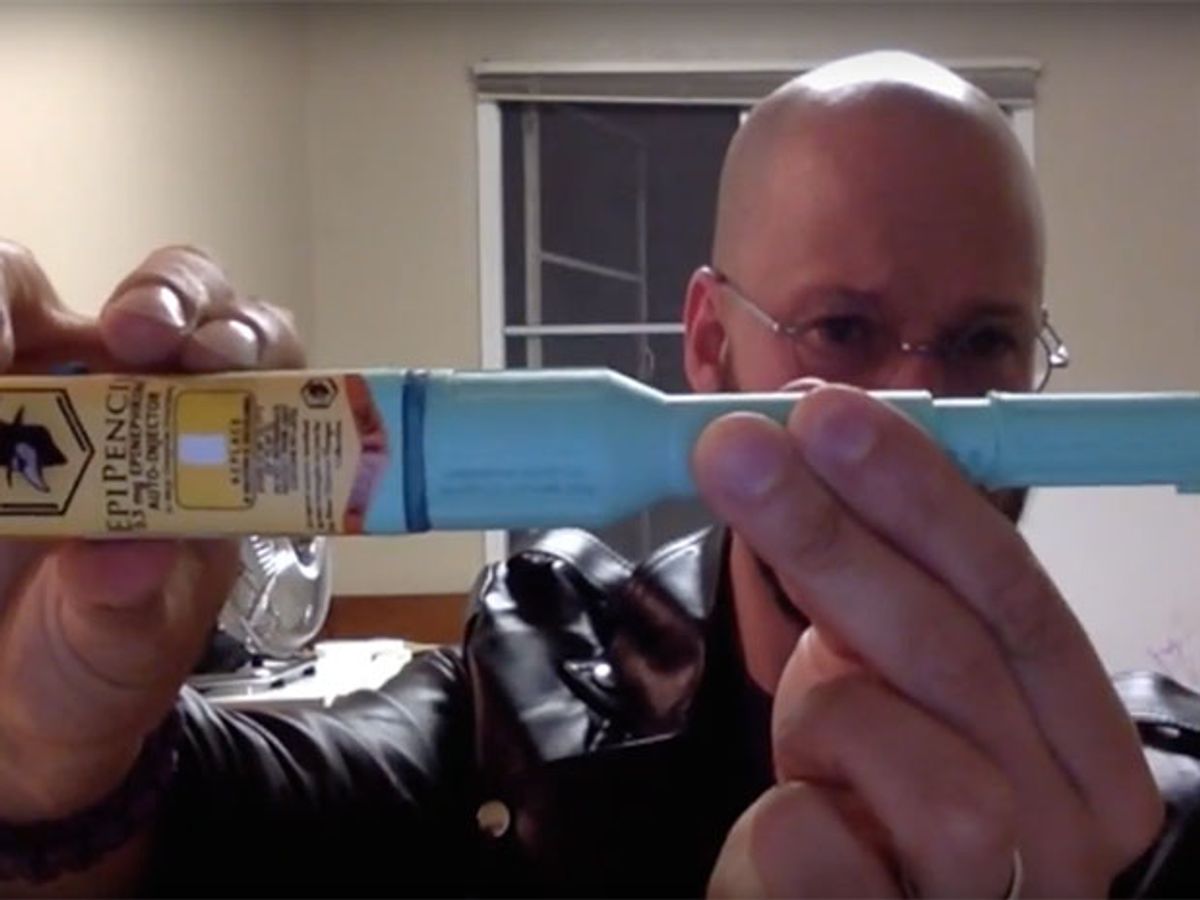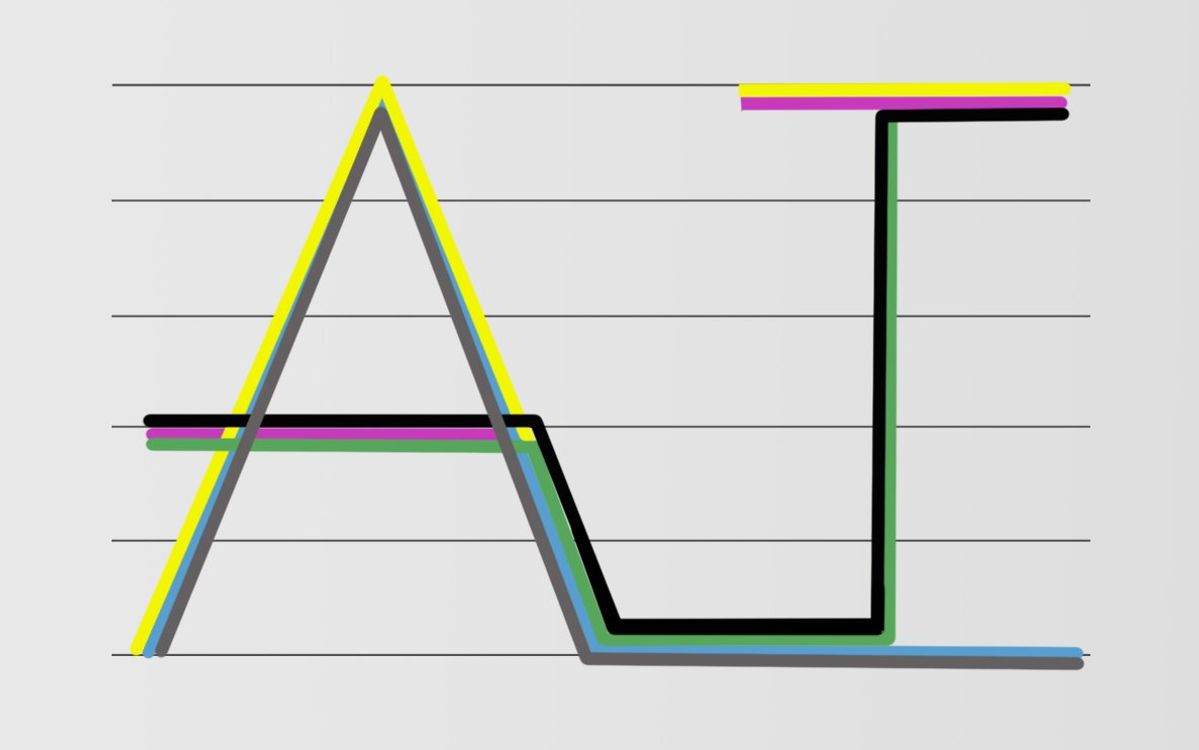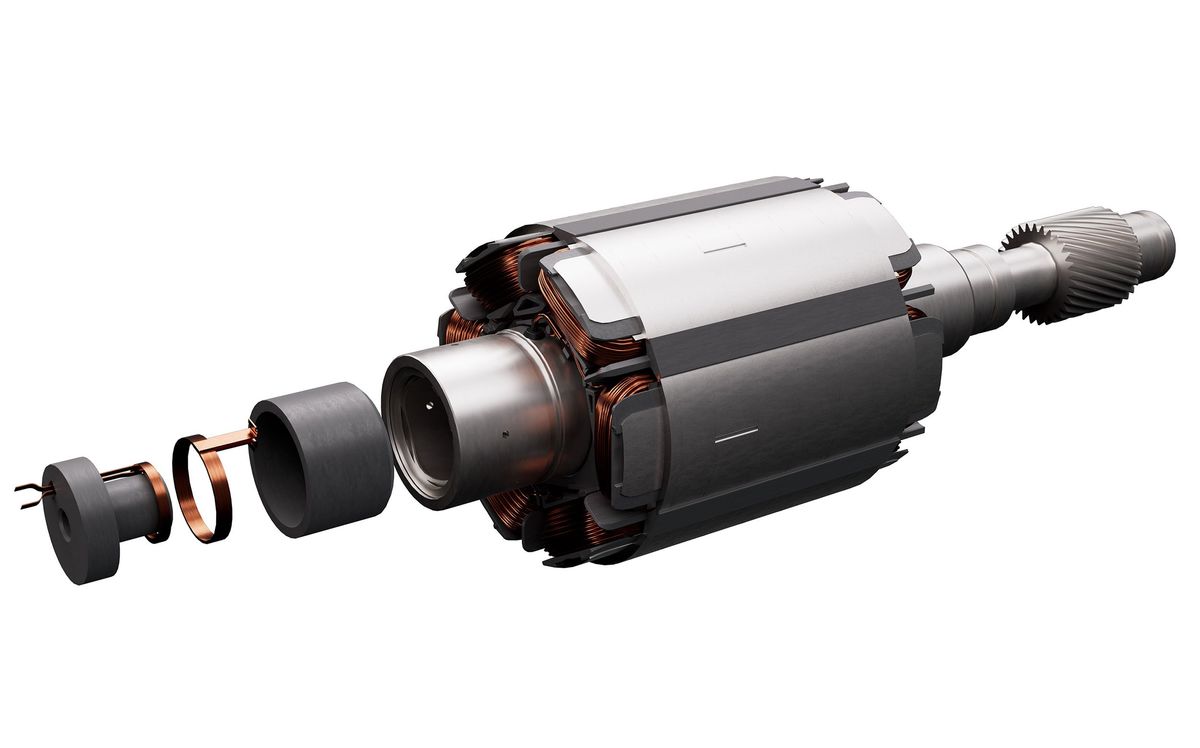Michael Laufer doesn’t have a life-threatening allergy to peanuts or bees. So he doesn’t need to carry an EpiPen, the automatic drug-injecting device that people with severe allergies stick into their thighs after accidental exposures.
But Laufer was still outraged by the recent news that Mylan, the pharmaceutical company that sells the EpiPen, had gradually raised the price of a 2-pen set from US $100 in 2007 to about $600 today. So, for those who do depend on the EpiPen to routinely save their own lives, Laufer and his pharma-hacking confederates at the Four Thieves Vinegar Collective have developed an alternative.
Today they released a video and instructions showing DIYers how to make a generic EpiPen using materials that can be bought online for about $30. They call it the EpiPencil. “It functions just as well as an EpiPen,” Laufer says in the video, after demonstrating the assembly and showing that it works. “With no special training, anybody can use it.”
An EpiPen is just a spring-loaded syringe filled with the pharmaceutical epinephrine. Laufer’s video shows how to assemble the “open source medical device” and provides links for where to buy the components online. He stops short of telling viewers how to get their hands on the drug, noting that you need a prescription for it.
But Laufer tells IEEE Spectrum in an interview that it’s easy to buy epinephrine online from a chemical supplier, and he hopes viewers will do just that. “There’s a small but hopefully growing subculture of people who are buying the active ingredients of drugs,” he says. “It’s encouraging to see people take control of their own health.”
The EpiPencil is just one initiative from Four Thieves, a collective Laufer founded to create tools for DIY medicine. He’s also working on a machine that will let people manufacture their own medicines. He revealed the first version of this tool, which he now calls the “Apothecary Microlab,” at a hacker convention in July.
The alpha version of the microlab was a tangle of tubes and sensors sprouting from a mason jar, but Laufer was already able to use it to make a cheap batch of the drug pyrimethamine—that’s the antiparasite drug made famous when Martin Shkreli, CEO of Turing Pharmaceuticals, raised the price of a dose from about $13 to $750. On the Four Thieves website you can download information about how Laufer made the drug, but the information isn’t organized into step-by-step instructions.
That will come, says Laufer. He tells Spectrum that he’s working on a beta version of the hardware, and he is also using a software program called Chematica to find simple ways to synthesize many common medicines. On his wish list: HIV medications, drugs to treat hepatitis C, and the “plan B” emergency contraception pill.
Laufer sees his work as a human rights crusade, and he hopes to eventually help people around the world who don’t have access to medicine. “Someone dies of AIDS every minute, and many of these deaths could have been prevented by the simple adminstration of pharmaceuticals,” he says. “I qualify that as murder—and I feel complicit,” he says.
His Microlab has a long way to go before it will be user-friendly enough for anyone to whip up their own batch of pharmaceuticals. But his goal is to release the schematics for a DIY device that includes code to run the reactions. “The thing will walk you through the process: Put this much in this tube, this much in that tube, check all this, press go, and come back in 12 hours,” he says. “It’s not quite as simple as a bread machine, but that’s the idea.”
While Laufer presents his work as an exercise in consumer empowerment enabled by new technology, bioethicists see something different. It’s a throwback to the bad old days of patent medicine and quacks, says Jennifer Miller, a professor of medical ethics at NYU. “He’s basically saying, we should deregulate drugs, and allow anyone to make anything. That is not safe,” Miller says. “We once had that system, and people died from it.”
Miller says that releasing a schematic of a medical device that hasn’t been validated by a regulatory agency is irresponsible. The average person can’t tell whether a device will work, she says, and that’s why we have authorities to do the evaluations.
And in the case of Laufer’s EpiPencil, she says the stakes couldn’t be higher. “If your child is having a life-threatening allergic reaction, you want to make sure they get the right medicine, at the right time, at the right dose,” Miller says. An EpiPen will give you what you need, she says, “but you can’t guarantee that with this other device.”
Eliza Strickland is a senior editor at IEEE Spectrum, where she covers AI, biomedical engineering, and other topics. She holds a master’s degree in journalism from Columbia University.




